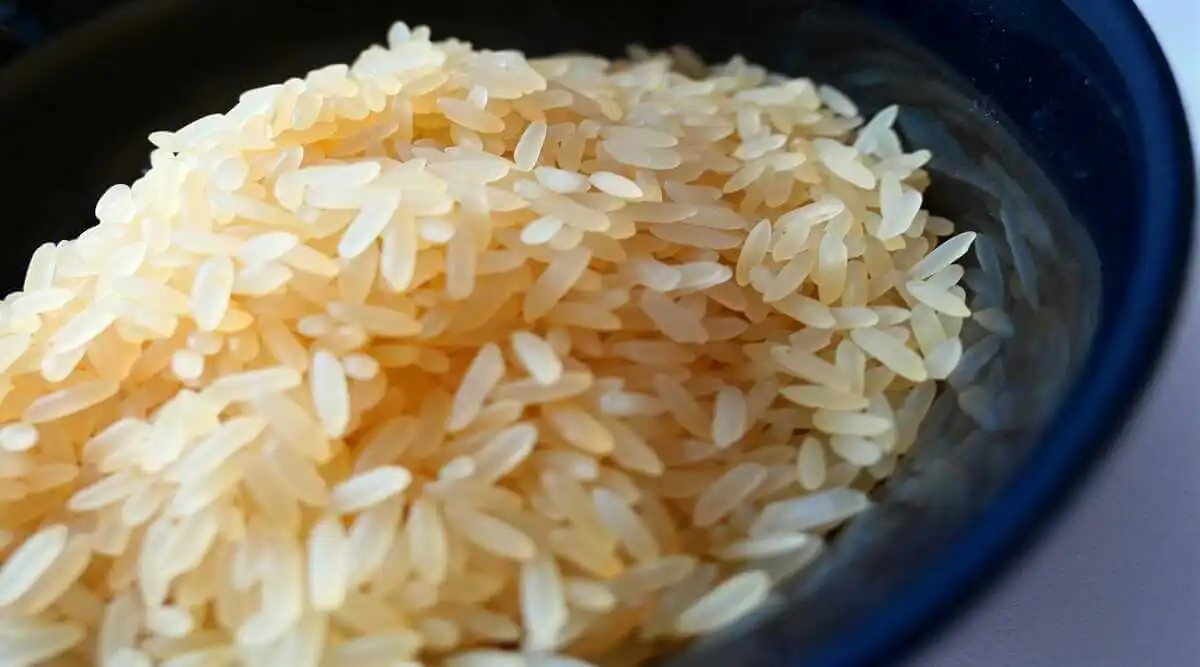There are a variety of methods that have been designed to lose weight. Some are more effective than others. However, all organisms are different and do not respond in the same way.
Rice, for instance, is qualified as an excellent food with nutritional properties since it is free of cholesterol, provides a good dose of fiber to the body and does not contain gluten.
In this article we will address whether eating rice at night helps you lose some weight.
Can we eat rice at night for weight loss?
Although eating rice at night can help you lose weight is a concept that has been the subject of debate, there is no solid scientific evidence to specifically support this claim.
In this sense, weight loss requires a balance between calories consumed and calories burned throughout the day, regardless of the time at which food is eaten.
So, maintaining this balanced and overall healthy diet is paramount because it includes a variety of nutritious foods in adequate portions and an adequate level of physical activity.
It is important to note that some people suggest avoiding carbs at night as a weight loss strategy, but this can vary depending on each individual and their lifestyle.
Instead of focusing on cutting out a specific food at certain times of the day, it’s better to focus on long-term eating habits that are sustainable and healthy.
Benefits of eating rice for dinner
Eating rice for dinner can have several benefits as long as it is incorporated into a balanced and healthy diet.
The following are the potential benefits:
Satiety
This food is a source of complex carbohydrates that provides energy and can help keep us full for longer.
Easily digested
It is a gentle food on the digestive system and can be well tolerated by many people, especially if cooked properly.
Essential nutrients
Brown rice, in particular, is a good source of important nutrients such as: fiber, vitamins (B complex) and elemental minerals (magnesium and phosphorus).
Low fat
It is low in fat, which makes it a lighter dinner option when paired with lean protein and vegetables.
Versatility
Rice is a versatile food that can be combined with a variety of healthy ingredients, creating balanced and delicious meals.
However, it is essential to keep in mind that the benefits of rice at dinner will depend on the type and amount of rice you consume, as well as the other foods that accompany it.
The most recommended option is brown rice instead of white rice since it provides more nutrients and fiber. Also, you need to watch your portion sizes and high calorie intake.
Remember that the most important thing to maintain a healthy diet and achieve weight loss is to have a balanced and varied diet, along with an active and healthy life.
How much rice should I eat for dinner to lose weight?
This will depend on several factors such as your current weight, your level of physical activity, your weight loss goals, and your individual calorie needs.
There is no one-size-fits-all answer, as each person is different. Here are some general guidelines that can help you determine an appropriate serving of rice for your dinner:
Portion size
A typical serving of cooked rice is usually around 1/2 to 1 cup (approximately 90-180 grams). This amount can vary depending on your caloric needs and other foods you eat for dinner.
Food balance
It’s important to combine rice with lean protein (chicken, turkey, fish, tofu, or legumes) and a good amount of vegetables for a complete and balanced meal.
Calorie intake
It’s essential to watch the total calories in your dinner, including rice. Make sure you don’t over-portion.
Listen to your body
Pay attention to your body’s hunger and satiety signals. Eat slowly and stop eating when you feel satisfied but not too full.
Consider physical activity
If you have an active lifestyle and exercise regularly, you may need a slightly higher amount of rice to meet your energy needs.
Remember that the key to effective and sustainable weight loss lies not just in the amount of rice you consume, but in your overall diet and lifestyle.
A balanced diet, rich in nutritious foods and in adequate portions, combined with regular physical activity, will be most effective in reaching your weight loss goals.
What to do after eating rice at night
After eating rice at night, it is advisable to follow some healthy practices to promote digestion.
Here are some suggestions:
- Go for a walk: a short and relaxed walk after dinner can help improve digestion and promote better blood sugar control.
- Avoid intense physical activities: After eating, it is better to avoid vigorous exercises or activities that require a lot of energy, since they could hinder digestion.
- Rest and relax: Try to avoid stressful situations or activities that keep you awake or restless. Stress can affect digestion and disturb your sleep.
- Limit fluid intake: It is advisable to reduce the amount of fluids you consume after dinner to avoid frequent interruptions during the night to go to the bathroom.
- Avoid heavy, high-fat meals: Try not to eat large amounts of food or high-fat foods shortly before bedtime as this can hinder digestion and cause stomach upset.
- Maintain good oral hygiene: Brushing your teeth after dinner helps maintain oral health and reduces the likelihood of cavities.
- Establish a regular sleep schedule: Try to go to bed at the same time every night and make sure you get enough sleep for your body to recover properly.
Remember that everyone is different and some practices may work better for you than others.
Is rice weight loss friendly?
This food can be friendly to weight loss as long as it is consumed as part of a balanced diet and in adequate portions.
It should be noted that brown rice is especially recommended for those looking to lose weight as it contains more nutrients and fiber compared to white rice.
Fiber helps keep us full and contributes to slower digestion, which can prevent blood sugar spikes and cravings. However, the key to effective weight loss is maintaining a caloric deficit (consuming fewer calories than your body needs to maintain your current weight).
Rice is relatively calorie-dense, so it’s essential to control portions and balance your intake with lean protein and a variety of vegetables and other nutritious foods.
In addition, you should consider the way rice is prepared, avoiding high-fat preparations such as fried rice, or high-calorie sauces.
Instead, you should select healthier cooking methods (boiling or steaming).
What type of rice is best for weight loss when consumed at night?
Brown rice is a better option due to the following criteria:
- Higher fiber content: Brown rice retains its bran layer, which gives it a higher amount of fiber compared to white rice. Fiber helps keep us full longer and contributes to slower digestion, which prevents blood sugar spikes and reduces cravings.
- Lower glycemic index: It has a lower glycemic index than white rice, which means that its digestion and absorption are slower. This helps maintain more stable blood sugar levels, which is beneficial for appetite control and weight loss.
- Higher nutritional density: Brown rice retains more nutrients and vitamins than white rice since it does not undergo a refining process that removes part of the nutrients.
- Less processed: This food is less processed than white rice, which makes it a more natural.
- Higher satiety: Due to its fiber and nutrient content, brown rice tends to be more satisfying, and makes you feel fuller with smaller portions.
It’s important to remember that even though brown rice is a healthier option, the amount and how it’s prepared are still important to your weight loss goal.
Eating brown rice at night during pregnancy
Eating brown rice at night during pregnancy can be a healthy option as long as it is well cooked and proper pregnancy nutritional guidelines are followed.
Here are some considerations to keep in mind:
- Essential nutrients: Brown rice contains nutrients such as fiber, iron, magnesium and B vitamins, which are important for the health and development of the baby.
- Fiber: The fiber in brown rice helps support healthy digestion and may help prevent constipation, a common problem during pregnancy.
- Low glycemic index: Brown rice has a lower glycemic index than white rice, which can help maintain stable blood sugar levels and prevent glucose spikes.
- Portion control: As with any food, it is important to control portions. Consuming adequate amounts of brown rice at dinner ensures a balanced caloric intake.
- Proper preparation: Be sure to cook brown rice completely to avoid any risk of contamination or foodborne infection.
It is essential to maintain a balanced and varied diet during pregnancy, ensuring that you consume a wide range of essential nutrients. In addition to brown rice, it’s important to include lean protein, healthy fats, fruits, vegetables, and dairy products in your daily diet.
Before making any significant changes to your diet during pregnancy, it is crucial that you consult with your doctor or a health professional who specializes in prenatal nutrition. Every pregnancy is unique, and getting the right advice will ensure you’re getting the nutrients you need for healthy fetal development.
Side effects of eating rice at night
Eating rice at night in itself does not usually cause serious or harmful side effects. However, there are some aspects to consider:
Indigestion
If you consume an excessive amount of rice or eat too quickly, you may experience indigestion or abdominal pain.
Weight gain
If you consume more calories than your body needs, and this happens consistently, it could contribute to weight gain.
Sleeping problems
Eating a large meal right before bed can cause discomfort and make it difficult to sleep. Also, foods high in sugar or fat may affect sleep quality.
Rise in blood sugar
If you have problems with insulin resistance or diabetes, rice can increase blood sugar levels, especially if it’s white rice or eaten in large amounts.
Nutritional deficiencies
If you focus too much on rice and neglect other food groups, you could miss out on important nutrients needed for a balanced diet.
It is important to note that the side effects of eating rice at night – if any – can vary depending on the type of rice, the amount consumed, other foods that accompany it, and each person’s individual needs.
To avoid possible negative side effects, follow these recommendations:
- Watch your portions and make sure you have a balanced dinner with a variety of nutritious foods.
- Avoid foods high in sugar and fat before going to bed.
- Eat slowly and chew your food well to facilitate digestion.
- If you have specific medical conditions or are concerned about your diet, please consult a health professional or registered dietitian for personalized guidance.
Frequently asked questions
The choice to eat rice in the morning or at night will depend on your personal preferences, your meal schedule, and your individual needs.
Eating rice at night does not significantly affect metabolism or fat burning compared to eating it at other times of the day. The impact of rice on metabolism and fat burning is more related to the total caloric content of the diet and the balance between calories consumed and calories expended throughout the day.
Eating rice at night can have an impact on sleep patterns and weight loss, but this will depend on several factors, such as the amount of rice consumed, the type of rice, and how it is paired with other foods.
Specifically if you eat rice at night, especially in large amounts or accompanied by other foods that can cause bloating, it could contribute to feeling bloated or heavy the following morning. This is because carbohydrates, including rice, can retain water in the body and cause some people to feel bloated. Also, if you eat a large amount of food in the evening or if your dinner is high in sodium, fat or foods that are difficult to digest, you are more likely to experience bloating or stomach pain upon waking.
Conclusion
There is no scientific evidence to support that eating rice at night can promote weight loss because weight loss is primarily based on the balance between calories consumed and calories burned during the day.
To lose weight effectively you must maintain a balanced diet, which includes nutritious foods in adequate portions and a physical activity plan.
On the other hand, some people recommend that avoiding carbs in the evening will help you lose body weight, but this can vary by individual.
However, it is better to focus on long-term eating habits that are sustainable and healthy.
Keep in mind the potential benefits of eating rice for dinner:
- Satisfaction and satiety
- Ease of digestion
- Essential nutrients
- Low fat
- Versatility
It is essential to opt for brown rice instead of white rice since it provides more nutrients and fiber. Likewise, it is necessary to control the size of the portions, and avoid excessive consumption of calories.

A. Neomar Evies es un profesor graduado y licenciado en informática. Investigador y conferencista que ha participado en diferentes eventos en diversos países. Tiene amplia experiencia en el campo de la gestión deportiva y el deporte de alto rendimiento y salud deportiva del atleta. También tiene un doctorado en Ciencias del Deporte y un Máster en administración. Como escritor ha escrito tres libros sobre sistemas de información centrados en Gestión y Deportes.





